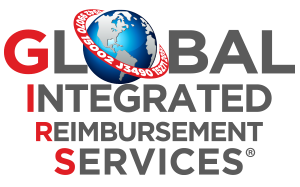For reimbursement services support, email us at info@girsinc.com or call us at 901-834-9119.
On August 24, 2020, we wrote a blog Do You Know What the Drug Pricing Executive Order Holds for #Medtech?
On July 24, 2020, President Trump signed four executive orders (EOs) on drug pricing directing the Secretary of Health and Human Services (HHS) to take multiple measures, to deliver lower cost prescription drugs to ensure Americans are getting the cheapest price possible for their drugs.
The Food and Drug Administration (FDA) recently finalized a rule that would permit prescription drug importation from Canada in FDA-authorized programs. The final rule follows the White House’s Safe Importation Action Plan. The Safe Importation Action Plan objectives were to put guidelines in place to import drugs that would decrease prices and improve access while also upholding the high superiority and wellbeing of Americans.
The final rule meets the outlook of the previous executive order, which will permit states to import certain prescription drugs from Canada. The FDA mentioned that the rule employs a provision of federal law that allows FDA-authorized programs to import prescription drugs from Canada under circumstances that certify the importation does not put the health or safety of people at jeopardy. Overall, the common goal in which the rule was created will be accomplished; to provide a discount in the cost of covered products to American customers. The FDA, along with the HHS, and other federal agencies emphasized guidelines that drug manufacturers can follow to facilitate the importation of prescription drugs, including biological products.
The following guidelines included:
- products must be FDA-approved
- manufactured abroad
- authorized for sale in any foreign country
- originally intended for sale in that specific country
The agency also implied that manufacturers could obtain a National Drug Code (NDC) for certain FDA-approved prescription drugs. The advantage of an additional NDC for products will permit more flexibility for drug companies to bargain the products at a lower price than what their current distribution contracts require. Prescription drugs along with biological products, introduced under the pathway and defined in the final guidance could be available to patients in a variety of settings such as: hospitals, health care providers’ offices, and licensed pharmacies. The products would just have to include the FDA-approved labeling.
The final rule has also provided guidelines on who can submit importation program proposals to FDA for review and authorization. A drug importation program can be governed by a sponsor and any co-sponsors. The list includes: States, Indian tribes, pharmacists, and wholesalers. However, the program must be approved by FDA to facilitate the importation of certain prescription drugs that are improved in Canada, as well as meet the conditions of an FDA-approved drug application. For prescription drugs that were previously authorized for use by the FDA, they must be re-labeled with the mandatory US labeling and be submitted for testing for validity, deprivation, provisions, and ethics.
Under the executive order, the drugs covered under the most favored nation pricing scheme, which includes both Medicare Part B and Medicare Part D, will be expanded. Additionally, the order instructs HHS Secretary Alex Azar to take suitable action to examine a payment model in which Medicare would pay no more than the most-favored-nation price. The most preferred nation tactic creates a quality trading opportunity among states by making originally bilateral agreements multilateral. For pharmaceuticals, this means taking advantage of global prices to lower drug costs for Americans.
Why is this important to GIRS client?
In our past blog, we provided the following key steps to prepare for any changes that may take place in the #medtech industry:
- continuing to monitor the development
- be ready to comment on any regulations
- have strong reimbursement strategies in place to gain favorable coverage for your Products
When determining FDA strategies and pathway, it is important for #medtech companies to consider reimbursement implications in parallel. As #medtech companies proceed with drug importation from Canada, they are more likely to encounter regulatory and reimbursement issues.
It will become as critical for them to also engage with payers at the same time to make sure payers are aware of the different approaches pharma is taking to address those evolving challenges and make sure they are presenting the endpoints that payers will need to make new coverage decisions and maintain existing coverage.
To implement successful market access strategies, the GIRS Value Discovery Landscape Assessments® team can conduct a Reimbursement Landscape Assessment to develop payer-desired strategies with clinical outcomes experts, coding experts, policy staff, reimbursement lawyers, and a panel of current insurer medical directors.
For more information, email us at info@girsinc.com or call us at 901-834-9119.
Disclaimer: The information in this blog is based on payer information which is dynamic. It is accurate at the time of posting but should not be construed to be reimbursement or legal advice. CPT® is the trademark of the American Medical Association (AMA).
Sources:
About GIRS
For more than 17 years, GIRS has been assisting medical technology manufacturers with their market uptake and reimbursement strategies so that patients can have access to the care that they need. To implement successful market access strategies, the GIRS Value Discovery Landscape Assessments® team and the Payer Advocacy Compass® team work together to develop and implement foundation reimbursement landscape and payer advocacy strategies to obtain positive coverage, appropriate payment, and innovative payer contracting arrangements to improve market uptake. For more information, email us at info@girsinc.com or call us at 901-834-9119.

